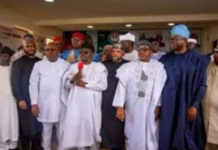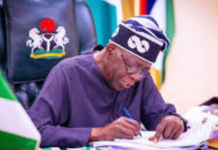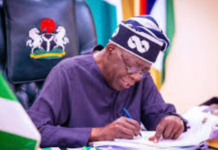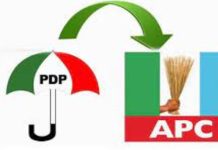The Ondo State governorship election has become a focal point in Nigeria’s political calendar, drawing national attention due to its significance as a bellwether for political trends in the southwestern region. With major parties gearing up for what promises to be a fiercely contested race, Ondo’s electorate is preparing to decide the next occupant of Alagbaka Government House.
Political Landscape
Ondo State, nicknamed the “Sunshine State,” has long been a political battleground, with its voters often demonstrating a tendency to defy conventional party allegiances. Over the years, the state has oscillated between the All Progressives Congress (APC), Peoples Democratic Party (PDP), and other smaller parties, reflecting its status as a hotbed of political diversity.
Key Contenders
This year’s election features a mix of familiar faces and new entrants, each vying to sway the state’s approximately 1.8 million registered voters.
– The Incumbent’s Party (APC): The APC, which currently holds power, aims to retain its grip on the state. The party’s candidate faces the dual challenge of consolidating achievements of the outgoing administration and addressing criticisms from opposition parties.
– The PDP: Historically strong in Ondo, the PDP is keen to capitalize on any perceived weaknesses of the ruling party. The party’s candidate promises a renewed focus on infrastructure, education, and economic revitalization.
– Emerging Forces: Smaller parties and independent candidates are also making their presence felt, with some advocating for a fresh approach to governance and emphasizing grassroots development.
Major Campaign Issues
The election campaign has centered on critical issues affecting Ondo residents:
– Healthcare and Education: Calls for improvements in these sectors dominate political discourse, with candidates proposing various reforms.
– Infrastructure Development: Promises to address road construction, power supply, and rural development have become common in campaign pledges.
– Economic Revival: With rising unemployment and poverty, candidates are proposing strategies to attract investments, support local businesses, and enhance agricultural productivity.
– Security: The growing insecurity in parts of the state has made it a significant election issue, with candidates outlining plans to strengthen community policing and collaboration with federal agencies.
INEC and Election Preparations
The Independent National Electoral Commission (INEC) has assured the public of its readiness to conduct free, fair, and credible elections. Efforts are underway to address logistical challenges, including the deployment of electoral materials and training of ad-hoc staff.
Security Measures
Given the history of electoral violence in parts of the country, security agencies have intensified preparations to ensure a peaceful process. The Inspector General of Police has deployed additional personnel to the state, with emphasis on protecting polling units, collation centers, and critical infrastructure.
What’s at Stake?
For Ondo State, the governorship election is more than just a political contest—it is an opportunity to chart a new course for its development. The outcome will shape the state’s trajectory in areas such as economic growth, governance, and social development.
For Nigeria, the election serves as a litmus test for the country’s democratic institutions, especially in light of recent electoral reforms aimed at enhancing transparency and accountability.
Conclusion
As Ondo State prepares for its governorship election, the stakes are high for candidates, political parties, and the electorate. The Sunshine State’s decision will undoubtedly reverberate beyond its borders, providing valuable insights into the broader dynamics of Nigerian politics.
Stay tuned for live updates, analysis, and results as the election unfolds.




















